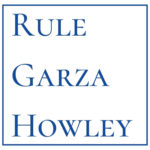Antitrust M&A Outlook for 2024
The Biden Administration is expected to continue to pursue aggressive merger enforcement in 2024 despite experiencing mixed success in court in 2023.
Revised Merger Guidelines issued in December reflect continued Agency skepticism of M&A activity and a rejection of the antitrust consensus of the last four decades. The Guidelines—which resurrect both old and nontraditional legal theories—suggest that many deals that do not appear to present significant competition concerns could be the subject of increased scrutiny in 2024; proposed changes to the HSR Form could further increase the burdens on such deals.
In 2023, the FTC was the more active of the two enforcement Agencies with regard to merger review, challenging six deals (five in healthcare and life sciences). The Justice Department initiated one merger challenge in 2023. As it did in 2022, the FTC also brought a case challenging private equity-backed acquisition activity, alleging a PE firm engaged in an unlawful industry “roll-up” strategy by pursuing a series of anesthesia provider acquisitions.
9 Transactions Restructured [2]
7 Deals Abandoned [3]
3 Challenges Pending in Court or Administrative Hearing [4]
Notable Trends in 2023
Agencies Encounter Mixed Success in Court. Courts have continued to be skeptical of novel theories of harm proposed by the Agencies. The FTC was unsuccessful in two high profile challenges initiated in 2022—Meta/Within (alleging an elimination of potential competition) and Microsoft/Activision (alleging a potential vertical input foreclosure). However, after those losses, the Commission had a string of successes as the year came to a close in challenges to deals in the healthcare and life sciences sectors. In total, four deals challenged by the FTC were abandoned in December; two of the four were terminated following court decisions favorable to the FTC (IQVIA Holdings/Propel Media and Illumina/Grail).
Continued Scrutiny of Private Equity Transactions. In September, the FTC filed suit against U.S. Anesthesia Partners (USAP) and private equity firm Welsh, Carson, Anderson & Stowe alleging a scheme to acquire a monopoly through “roll-up” transactions. This follows a similar FTC action in 2022 against private equity firm JAB for an alleged roll-up of veterinary service clinics, which resulted in a consent decree ordering divestitures and imposing prior approval and prior notice requirements. The Agencies have signaled a clear intention to use the HSR process to closely scrutinize private equity deals for signs of potential roll-up activity. The revised Merger Guidelines note that transactions that appear to be “part of a firm’s pattern or strategy of multiple acquisitions” may trigger examination of “the whole series.” The proposed revisions to the HSR Form would also require firms to disclose information regarding prior acquisitions, minority interest holders, and board observers.
FTC Revives—and Expands—Section 8 Enforcement. As part of an effort to “reactivate” Section 8 of the Clayton Act, which prohibits interlocking directorates between competitor “corporations,” the FTC challenged a proposed transaction between Quantum Energy and EQT Corporation that would have resulted in the appointment of a Quantum-designated individual to EQT’s Board. This action marks the first time the FTC has brought a case under Section 8 in 40 years. Notably, the FTC used the challenge to expand Section 8’s traditional scope to include limited liability companies and partnerships. In a statement specifically noting the use of limited liability structures in the private equity and financial sectors, Chair Khan and Commissioners Slaughter and Bedoya emphasized that the FTC would enforce Section 8 against alleged wrongdoers “no matter what specific corporate form their business takes.”
Significant Merger Challenges in 2023
Healthcare. December brought four victories for the FTC in the healthcare industry: (1) a federal court granted the FTC’s request for a preliminary injunction to prevent IQVIA Holdings from acquiring Propel Media; (2) John Muir abandoned its buyout of Tenet Healthcare‘s share of San Ramon Regional Medical Center after the FTC challenged the deal in court and through a Part 3 proceeding; (3) Sanofi terminated its $755 million licensing agreement with Maze Therapeutics after FTC sued, alleging the agreement would eliminate nascent competition; and (4) Illumina announced it would divest Grail after a Fifth Circuit decision agreed with the FTC that the merger was “likely to substantially lessen competition.”
These victories follow the September settlement of the FTC’s challenge to Amgen’s acquisition of Horizon Therapeutics. In a first for the Biden administration, the FTC agreed to a settlement based on a proposed behavioral remedy. Amgen agreed not to enter specific product markets without prior FTC approval, among other minor behavioral restrictions. Two other Agency challenges—ASSA ABLOY/Spectrum and ICE/Black Knight—ended in settlements in 2023 that, despite increased skepticism of pre-suit remedies at the Agencies, hewed closely to the parties’ pre-suit offers.
Airlines. In 2022, DOJ challenged JetBlue and American Airlines’ Northeast Alliance—a series of agreements between the two carriers that DOJ argued amounted to a “de facto merger.” A federal judge ruled in favor of DOJ in May 2023. The parties subsequently ended their arrangement, but American has appealed the decision to the First Circuit.
In March 2023, DOJ challenged another airline deal— JetBlue’s acquisition of Spirit Airlines. DOJ argued the merger would decrease competition in the low-cost carrier market and lead to higher prices for consumers. In January 2024, a federal judge ruled to block the deal. JetBlue and Spirit have filed a notice of appeal.
Technology. Agency challenges fared less well in the technology sector with the FTC experiencing significant defeats in court. In Meta/Within, although the court accepted the viability of the FTC’s theory that an acquirer could be viewed as a potential competitor to the acquisition target, the FTC was unable to meet its burden to prove its potential competition theory. While the FTC abandoned its effort to block Meta/Within, the Commission has appealed its Microsoft/Activision defeat to the Ninth Circuit.
On the Horizon in 2024
Impact of Newly Revised Merger Guidelines. In December, the Agencies released new Merger Guidelines addressing a range of potential competitive harms resulting from horizontal, vertical, and conglomerate mergers. Of particular note, when compared to prior guidelines, the revised Guidelines create a presumption that mergers may be unlawful at lower levels of concentration, while providing no guidance concerning any corresponding safe harbors.
Under this new approach, a merger resulting in a combined market share greater than 30% will be presumed illegal by the Agencies. In addition, the revised Guidelines abandon the consumer welfare standard and embrace theories that have not been used by the Agencies in many decades — namely, whether a merger will eliminate “perceived potential competition,” whether there is a trend toward consolidation in the relevant market, and whether a transaction fits into a larger “anticompetitive pattern or strategy of multiple acquisitions in the same or related business lines.” The revised Guidelines further reflect the Biden Administration’s concerns about the labor impacts of M&A activity, private equity “roll-up” transactions, the strategic use of acquisitions to eliminate a “nascent competitive threat,” and vertical acquisitions that result in a firm controlling “important inputs” used by current and potential competitors.
A Revised HSR Form. In June of 2023, the FTC issued a notice of proposed rulemaking that would significantly increase the information and documents filers must produce in connection with HSR pre-merger notifications, including for transactions unlikely to raise significant competitive issues that might otherwise be considered candidates for early termination of the first 30-day waiting period. The FTC itself has conceded the proposed changes would substantially increase the burden associated with pre-merger notification. In its Notice of Proposed Rulemaking , the FTC estimated that the revised requirements would, on average, add 107 hours to the time required to complete a filing. But critics have argued, and we agree, that the real figure will be significantly higher for many filers.
The FTC is said to be seriously considering criticisms raised in public comments. A final rule is expected to be issued in the first half of 2024.
Key Takeaways for Getting the Deal Done in 2024
Avoid Surprise through Early Regulatory Assessment by Experienced Counsel. Expanded theories of harm and the lack of reliable safe harbors make it particularly advisable to consult early with experienced antitrust counsel. In addition, companies should consider addressing in diligence non-compete, interlocking directorate and other issues that might hold up merger review.
Manage for Regulatory Risk. Regulatory risk management should anticipate longer review times, agency willingness to litigate rather than settle, and agency insistence on long-term prior approval terms that could substantially restrict future transactions.
Consider “fixes” and be Prepared for Litigation Where Appropriate. Ultimately, the Agencies can be compelled to prove a case in court, and courts have proven to be receptive to evidence and arguments rejected by the Agencies and to effective deal restructuring that resolves competitive concerns. Where there is a substantial risk of challenge, it pays to be prepared to litigate and/or address the allegations of competitive harm structurally where practicable.
[1] ICE/Black Knight; Amgen/Horizon; John Muir/Tenet; Sanofi/Maze; IQVIA/Propel Media; Jet Blue/Spirit; Altria/Juul; and U.S. Anesthesia Partners & Welsh Carson (FTC roll-up challenge).
[2] Quantum Energy; Amgen/Horizon; ICE/Black Knight; Assa Abloy/Spectrum Brands (suit initiated in 2022).
[3] John Muir/Tenet; Sanofi/Maze; Adobe/Figma; Benteler Steel/Tube Manufacturing Corp.; IQVIA/Propel Media; JetBlue/American’s Northeast Alliance (suit initiated in 2022); Illumina/Grail (suit initiated in 2022)); and JetBlue/Spirt.
[4] U.S. Anesthesia Partners (FTC roll-up challenge); Microsoft/Activision; JetBlue/Spirit.

Charles F. (Rick) Rule
Chair202-843-9170
rule@rulegarza.com

Deborah A. Garza
Partner202-843-9213
garza@rulegarza.com

Daniel J. Howley
Partner202-843-9147
howley@rulegarza.com
Download a PDF version of this M&A Outlook here.


